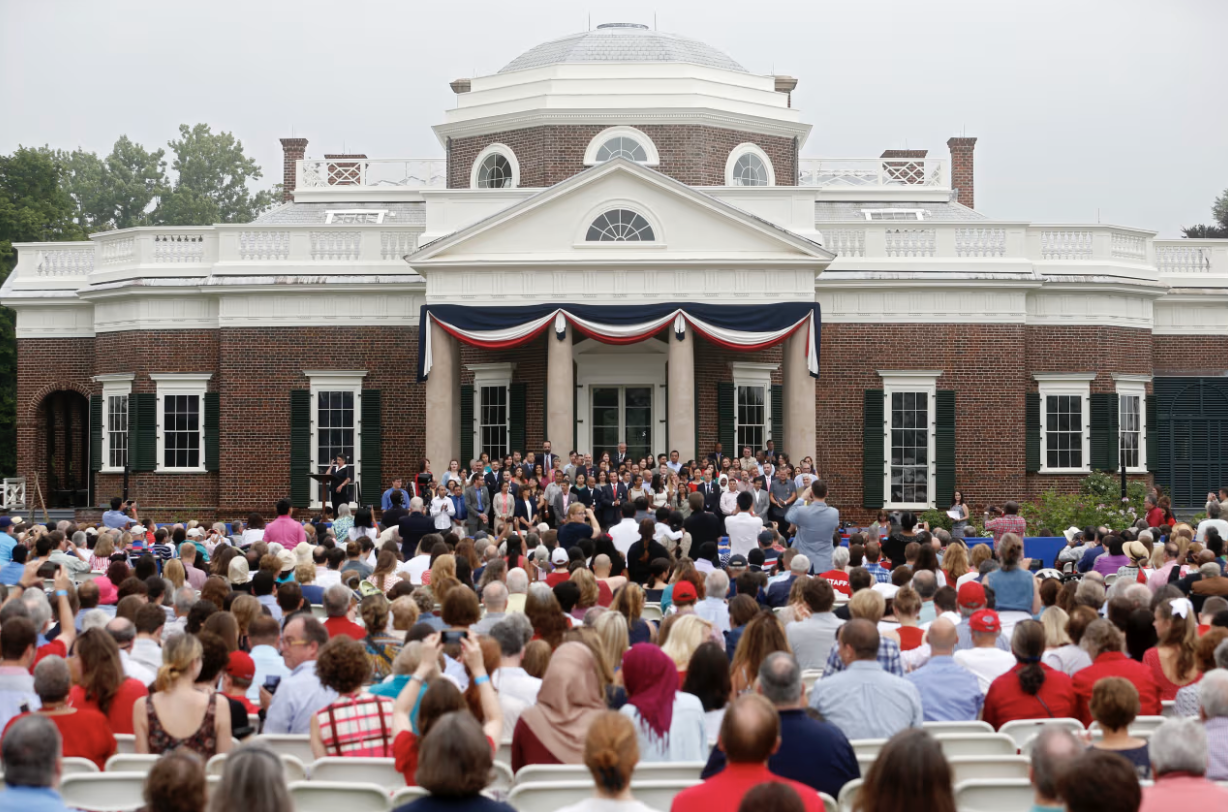
It took one member of the small drafting committee—a tall, quiet, red-headed young Virginian—two weeks to write the document. His colleagues then spent several days considering and revising his work before approving it on July 4, 1776. Two days later, newspapers reprinted Thomas Jefferson’s work. It was another month before members of the Continental Congress signed the engrossed Declaration of Independence. That was Aug. 2, 1776—249 years ago this Saturday.
As I wrote last month, the Declaration’s radicalism propelled the American Revolution and brought about a monumental shift in world history. The Continental Congress’s president, John Hancock, signed the document first, centering his name in big letters. The tale that he wrote it large so that America’s last king, George III, could read it without his spectacles is likely apocryphal. Hancock’s signature was bold because he was flamboyant, bigger than life.
He and the other 55 members of the Continental Congress who signed the Declaration solemnly pledged “to each other our Lives, our Fortunes and our sacred Honor.” Each knew if the rebel army under George Washington lost the fight for independence, he would likely hang, be drawn and quartered, or rot in a British prison.
In the weeks since I wrote about the coming semiquincentennial and the opportunity for national reflection on our founding, readers have asked how they can participate in such a discussion. Many groups are planning activities to spark such a conversation. Here are a few to pick from:
The American Enterprise Institute hosts discussions and highlights publications on the founding’s central issues in a series titled “We Hold These Truths: America at 250.” AEI has already held seven of a dozen planned conversations and released threeaccompanying collections of essays. Each program covers the relationship of the Revolution to important issues such as democracy, capitalism, religion, natural rights and slavery. The symposia are online at the AEI 250 website, and so are the books.
Then there’s the Declaration Book Club—courtesy of Thomas Jefferson’s Monticello working with More Perfect, a group that includes all 34 presidential libraries and more than 100 other partners. The Declaration Book Club provides readings, videos, copies of original documents, and discussion materials for schools, colleges, book clubs, community groups and even informal conversations. The materials focus first on the Declaration’s influence during the Revolution, then 50 years later and then beyond. They’re free and downloadable online.
The Fund for American Studies sees the Declaration’s 250th anniversary as an opportunity to rekindle interest in civic education and reset the narrative about our founding. The Declaration’s semiquincentennial next year is the start of a series of significant American anniversaries, leading up to the Constitution’s 250th birthday in 2037 and the Bill of Rights’ in 2041. To mark these important milestones, TFAS will launch programming in 2026 for high school and college students and young professionals, drawing on the thinkers—from Socrates and Cicero to John Locke and Adam Smith—on whom the Founding Fathers relied as they fashioned a new nation “conceived in liberty.”
There will be local offerings too. The America250 committee, a nonpartisan national group authorized by Congress, is working with subgroups in each state to help shape programs for next year’s celebration.
Each of us can also undertake our own program of reflection, choosing from the many excellent books and videos on the Revolution and founding. (I’ll publish suggestions on my website, Rove.com, starting next month.)